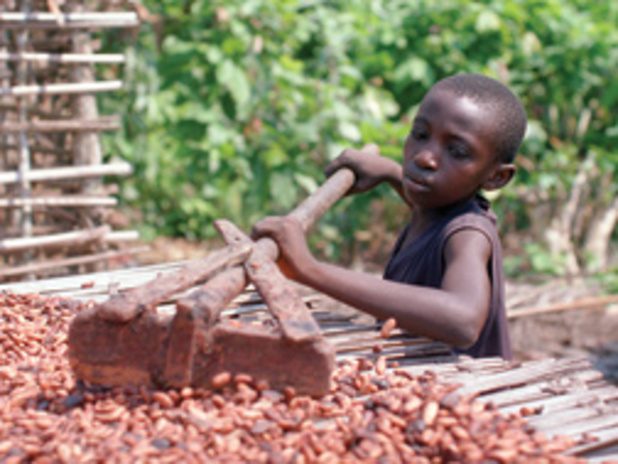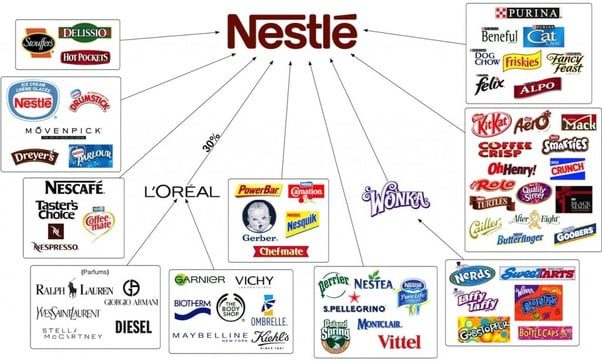Nestlé, a global giant in the food and beverage industry and owner of more than 2000 brands in 189 countries, has found itself ensnared in a web of controversies, prompting calls for boycotts from concerned individuals and advocacy groups. In this short exploration, we’ll share a bit about the reasons behind why we choose to boycott Nestlé and the brands associated with the giant corporation.
- Water Exploitation: Nestlé has faced severe criticism for its water bottling practices, particularly in regions grappling with water scarcity. Accusations point to the company’s extraction of water from vulnerable communities, raising environmental and ethical concerns. The alleged depletion of local water resources for profit has become a focal point of outrage among environmental activists. Not to mention this water goes into plastic water bottles, which is its own environmental issue, leading us to our second point..
- Bottled Water and Environmental Impact: Nestlé’s extensive bottled water operations have come under fire for their environmental consequences. The entire life cycle of plastic bottles, from production to disposal, contributes to pollution and ecological harm. Critics argue that Nestlé’s bottled water business needs to address these environmental impacts more effectively, including reducing plastic waste and promoting sustainable packaging.
- Baby Formula Marketing Practices: Nestlé’s marketing practices related to baby formula have been a longstanding source of contention. Critics argue that the company engages in aggressive promotion of infant formula in developing countries, potentially compromising infant health and undermining breastfeeding efforts. The debate surrounding Nestlé’s role in discouraging breastfeeding in favor of formula consumption has fueled protests and calls for boycotts.
- Alleged Child Labor in Cocoa Production: Nestlé, along with other chocolate producers, faces persistent accusations of sourcing cocoa from regions with child labor. Despite alleged commitments to eradicate child labor from its supply chain, Nestlé continues to not provide evidence that they are ensuring fair labor practices. Nestle has told a senate committee that Australia’s proposed mandatory reporting requirements could add “cost and time” to businesses and suppliers “which will need to be borne somewhere”. This ethical concern remains a significant point of contention among socially conscious consumers.

- Palm Oil Sourcing and Deforestation: The use of palm oil by Nestlé has drawn scrutiny due to its association with deforestation and environmental degradation. Nestlé’s commitment to sustainable palm oil sourcing has been questioned, with critics alleging the company’s contribution to the destruction of rainforests. The environmental impact of Nestlé’s palm oil practices remains a pressing concern for eco-conscious consumers.
- Marketing Unhealthy Products to Children: Nestlé, like other major food corporations, faces accusations of marketing unhealthy products, specifically targeting children. The promotion of sugary cereals and snacks has raised concerns about its impact on childhood obesity rates and overall public health. Advocates for healthier living and child well-being point to the need for Nestlé to adopt more responsible marketing practices.
Final Thoughts: As Nestlé weaves through its web of controversies, it’s clear that consumers, myself included, are becoming increasingly conscious of the ethical and environmental shadows cast by our choices. The decision to stand against Nestlé stems from a commitment to personal values, demanding a call for transparency, accountability, and a shift towards sustainable practices within the broader food and beverage industry. It’s a stance against supporting practices that raise ethical concerns, urging for change and a more responsible approach to our consumption habits.
